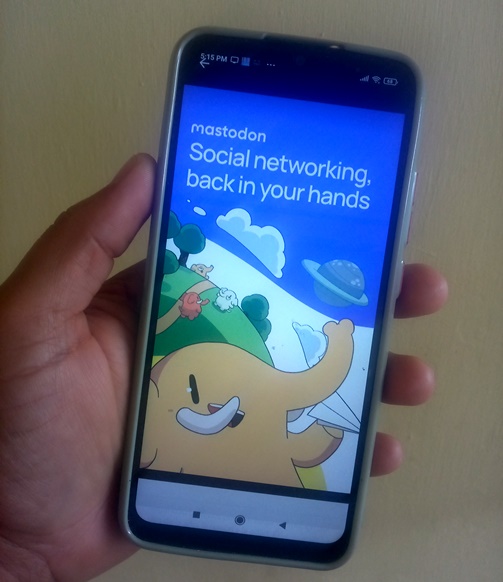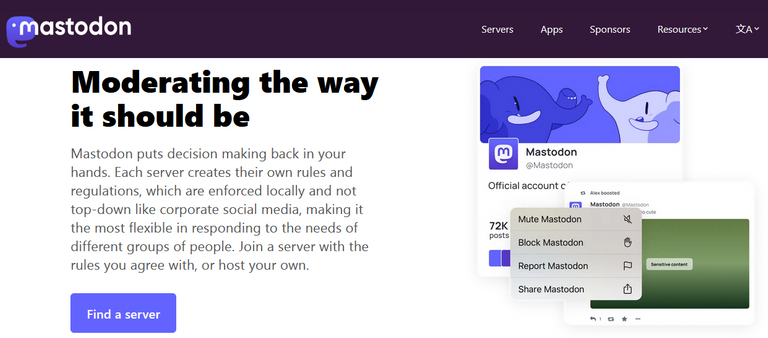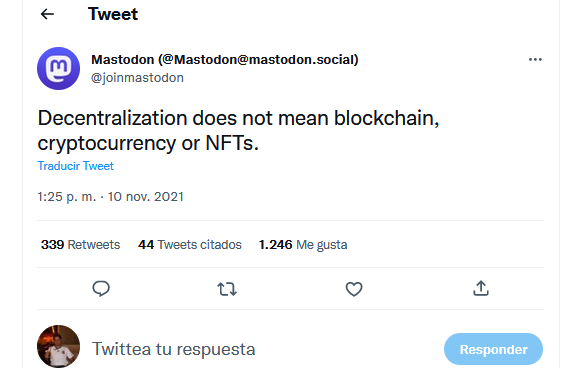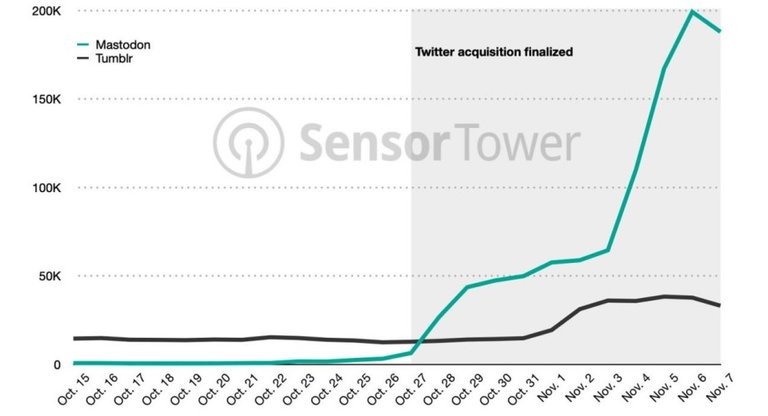We all know the relevance of social networks today, and although Twitter is a pioneer in the field, it represents centralization, something that disappoints many users who have seen in emerging social networks a friendlier place, making Mastodon, a decentralized social network is positioned as a benchmark for social networks of the future. Will the colorful mastodons overcome the blue bird?

They describe themselves as a decentralized social network. Source: @emiliomoron.
Since Elon Musk arrived at Twitter he has strived to transform this pioneering social network into the largest digital meeting place of the century, however, despite his promises to eliminate bots and integrate new elements to the platform many users have migrated to Mastodon.
The social network of the colorful mastodons looks attractive in many aspects, and although it has a very similar aesthetic to Twitter, the fundamental difference lies in the fact that it is a social network that does not respond to a corporation, a single boss or group of shareholders.
Let's start by explaining what Mastodon is. It is a microblogging social network that was born in 2016 thanks to the German developer Eugen Rochko, as a free alternative to centralized platforms, since it works with a distributed structure, using a decentralized federation of servers, based on an open source protocol, do those features sound familiar?

Mastodon works with a decentralized structure and each server creates its own rules. Source: screenshot taken from joinmastodon.org.
But no, it is not a blockchain, in this case decentralization has nothing to do with blockchain or cryptocurrencies; the decentralization achieved by this social network is achieved thanks to the division of the network into smaller networks, users create different servers which they call "instances", and thanks to its open source each user can build their own community. These servers are connected through the traditional systems used by web pages, but through a protocol that allows the creation of messages that can be shared only with the members of a community or also some that can be read by all the servers that make up the social network.

In a Tweet the social network clarified that this case decentralization has nothing to do with blockchain. Source: screenshot taken from the twitter @mastodon.
And although this social network had already come to light in 2016, it was not until October last year, when Elon Musk officially acquired Twitter, that the growth of this social network exploded, registering up to 80 new users per hour, going from just a few thousand to almost 200k users in less than a month.
It seems that the decisions made by Musk to take control of the social network Twitter angered many users, especially the notice of paid notifications, and these users set their sights on Mastodon, as it has a particular advantage, a single person cannot impose his will.

Mastadon's growth after the acquisition of Twitter. Source: screenshot taken from sensortower.com.
And Mastodon's decentralized operation has another advantage, it promotes itself as an uncensored social network, although this does not mean that there are no rules. Each community can create its own rules of conduct, mainly aimed at avoiding the distribution of racist, sexist messages, child pornography or excessive advertising.
But even if you do not agree with the rules of a community, you can go to another one or form one with your own rules. This does not mean that each community lives in isolation, because thanks to the interoperability of the networks, users from different communities can interact with each other.
Another advantage of this social network is that it is free, although many social networks are also free, its maintenance is conditioned to the sale of ads, which does not happen in Mastodon, since its distributed structure allows its operation without advertisers or shareholders who control the activity according to their interests.
As we can see it is a microblogging social network that has implemented a distributed structure, which despite certain features that cryptocurrency enthusiasts may find familiar does not use blockchain technology, but it is an interesting alternative to centralized social networks.
Well friends, I hope you liked the information. See you next time!